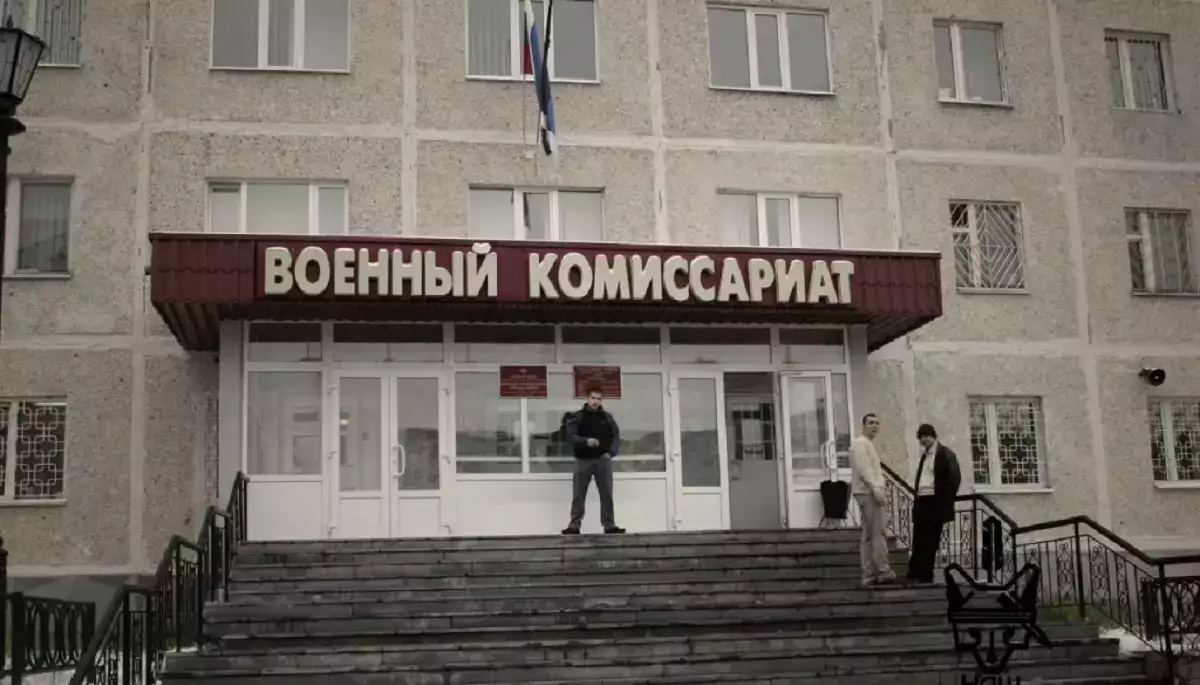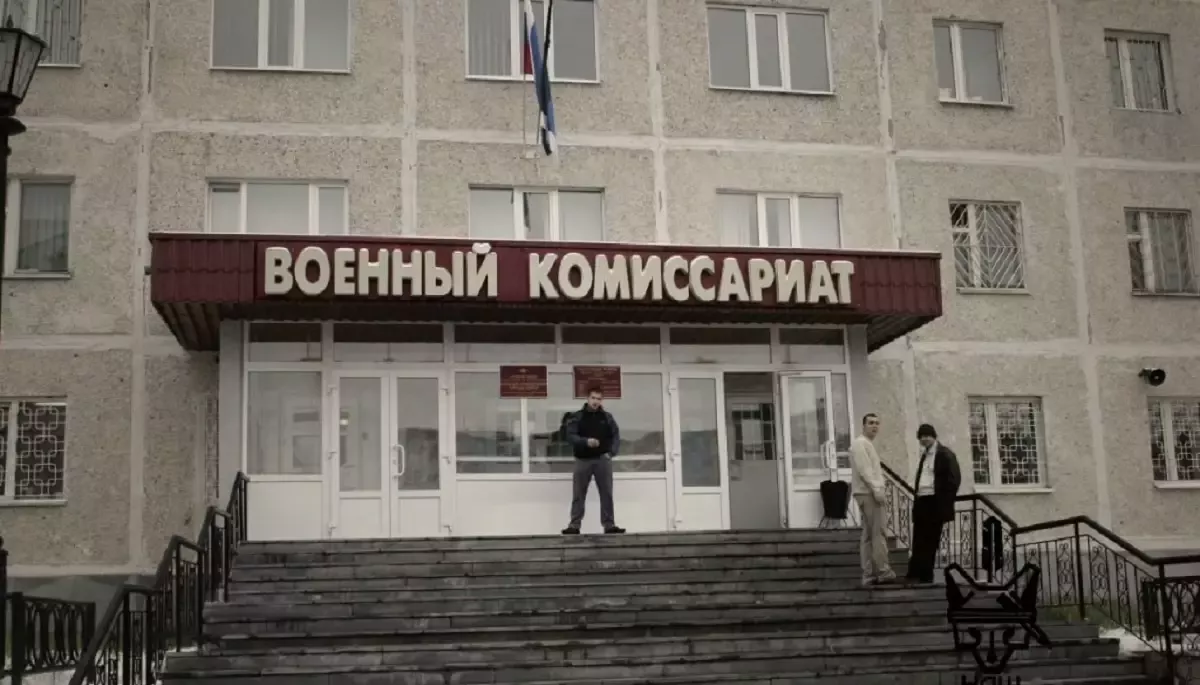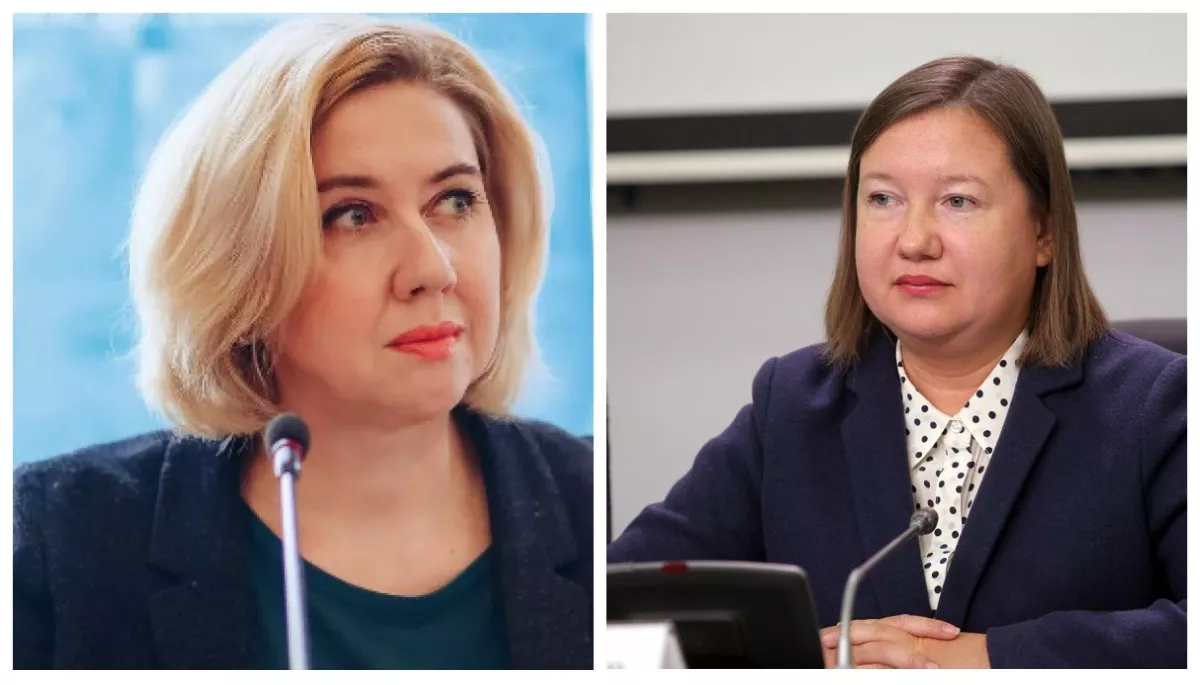
“Goodwill gestures” of Russian propaganda. Overview of the Russian information space in the back half of June 2022
“Goodwill gestures” of Russian propaganda. Overview of the Russian information space in the back half of June 2022


Russian authorities go out of their way to introduce martial law in the country without formally announcing it: Russian cityscapes have seen the appearance of murals in honor of the “special operation heroes”, smuggling of sanctioned goods is being legalized as “parallel imports”, the lists of KIAs are classified as a state secret, and civilian professionals are lured into Ukraine’s occupied territories with big bucks and the “veteran” status. However, these efforts are cancelled out by the lack of integrity and corruption of the state apparatus.
The continuation of the war against Ukraine in the form of a “special operation” makes Russian authorities both happy and concerned at the same time. The reason for the former is the considerable ability to hide and deny any miscalculations and crimes of the government at all levels, as well as suppress any resistance and dissent under the pretext of fighting “enemies of the people” and “foreign agents.”
However, there are no fewer reasons for concern: the perfunctory approval of the war conceals the ever more noticeable reluctance of the majority of Russians to pay for it out of their own pockets and with the lives of their relatives. Therefore, even the “bunker grandpa” is forced to make public appearances and announce populist initiatives, while the State Duma resorts to introduction of unpopular bills with one hand and putting them aside with the other, once the negative reaction of social networks trickles in.
In order to understand how successful Russian authorities are in the creation of a parallel reality in which the “special operation” goes “as planned” and how they manage to convince themselves and their subjects that “all the goals will be achieved,” I compared the coverage of the war by local Russian media in early and late June.
The first important observation is this: Russians are trained to believe that war in the form of the “special operation” is going to become a part of their everyday lives. The next logical step, as may be deduced from the imperial experiences of the past (not only Russia’s), will consist in the subordination of the lives of most Russians to the immediate purposes of the war.
One of the most important signs is the dissemination of lies and fabrications with regard to the dynamics of hostilities:
- “Highly accurate and effective” strikes of Russian artillery and aviation;
- “conquest” and occupation of Ukrainian cities ahead of schedule;
- “Crimes” of the Ukrainian military;
- nbsp; "Benevolence" of Russian troops and political leadership.
Retreat of Russian troops from the Snake island has been presented as a “goodwill gesture" as “Russian lies often rely on the absence in the media of any independent expertise which would allow verification of official data or reports from questionable sources. For instance, the “Press Krasnodar” news agency reports with reference to the “Telegram channel of the DPR’s Ministry of Emergencies” that “Russia’s and DPR’s Ministries of Emergencies” have defused 35,500 ammunition pieces and mines in Mariupol alone. To put things into perspective, sappers of the Ukrainian army supported by foreign countries were able to defuse only 14,503 explosive devices in the free parts of Donbas during the 16 months of 2020-2021.
It should be noted that such exaggeration of the occupants’ “feats” after the five months of war is going to backfire at the Kremlin. If everything is so good and the situation for “Ukrainian nationalists” is only getting worse, why make an extra effort and rush to the war as a volunteer or donate for the needs of the army?
Signals from Russia’s regions indicate that every party bigwig or representative of the “power vertical” uses the war in his or her own interests, and most are indifferent to Putin’s military goals.
This conclusion ensues from the second observation: against the backdrop of massive propaganda disseminated by national media, the number of original messages and materials in regional and local media is falling. This means that either the level of interest in war is decreasing, or any news not authorized by central authorities gets deliberately blocked.
First, mentions of Ukraine are becoming rare. Even the number of materials on “refugees” — Ukrainian citizens who were deported from the occupied territories to Russia’s various regions — has decreased.
Instead, there has been a noticeable increase in the number of publications and stories in which “volunteers” from among local officials who travelled to the Ukrainian occupied territories talk about successful “liberation”, “joy” of the locals and “crimes” of the Ukrainian army. These accounts of “eyewitnesses” are used to repeat the same messages that are disseminated by national media.
Secondly, there is a growing number of messages designed not to shape public opinion in support of the war but solely to demonstrate the “active work” done by local bureaucrats. The geography of such news’ distribution confirms that military topics are meant to fill the void of the authorities’ achievements in the run-up to local elections scheduled for September 11.
It is already noticeable how the symbols of war, which the authorities have turned into an indispensable and most important element of “patriotism,” are used by everyone for a wide variety of purposes. For instance, as the Daily Storm online media reported on June 30, one of the candidates running for a seat in the Moscow City Duma has launched an anti-drugs campaign under the slogan “Zакладкам NET” (“No to stash” – with the Russian word for “stash” spelled with the Roman “Z” instead for its Russian-language equivalent). The Pskov-based branch of the LDPR (liberal democrats) party have covered the entire city in billboards reading “Zа мир, Zа Россию, Zа Донбасс” (“For Peace, For Russia, For Donbas” – with Roman “Z” once again used instead of the Russian letter). Members of the “Just Russia” party wear pins with the symbols of the “special operation” and hand out the award called “We leave no man behind” to the veterans of the war. This practice not only destroys Putin’s monopoly on the “victorious little war”, but also devalues the very symbols of war.
Indeed, if the full truth about the humanitarian disaster in Mariupol (where not only electricity, water and heating, but also 90% of the buildings disappeared as a result of Russia’s offensive) suddenly caught the eyes of Russians it would undermine trust not only in the candidates from Putin’s party, but also in the whole “humane warfare” narrative.
However, it seems that advantages of PR in the times of war outweigh the risks, since its instances can be seen in regions where there will be no elections in the fall. Measures in support of aggression against Ukraine are often just window dressing meant to demonstrate hyper-loyalty to the Kremlin’s policies and undertaken for the sake of one’s own image.
For instance, local authorities of the Stavropol region visited the city of Antratsyt in the Luhansk region, which has been occupied by Russia since 2014. There have been no hostilities there since then. Of course, the governor and deputies do not tell their voters about it - who on the God’s green earth knows where Antratsyt is located and why no one has been interested in its “reconstruction and development” for the past eight years?
Meanwhile, in Novosibirsk, they have come up with an idea to reimburse the costs spent by the families of the KIA on the purchase of places in cemeteries for their burial. However, this happened only after the relatives of one such KIA were forced to pay for a better place.
Thirdly, problems related to the execution of the “special operation as planned” already emerge on the agenda of local authorities. In addition to “humanitarian aid” and “volunteering,” local authorities are forced to allocate money from their budgets for the purchase of equipment for the military. It is very telling that in doing so local deputies refer to complaints of soldiers of the “second strongest army in the world” concerning the insufficient provision of the most necessary things.
The third important observation for June consists in the following: the Kremlin is trying to convince Russians that the war will bring financial benefits and advantages to all those engaged in it, one way or another.
Here is a list of “carrots” that both national and local media have been actively reporting on:
- volunteers are offered a monthly salary of “up to 400 thousand rubles”;
- civil professionals (doctors, teachers, volunteers) partaking in the occupation will be granted the status of veterans and combat veterans;
- retirement packages for the retired military will be increased by 10%. This is an incentive, since the said packages were frozen in 2020-2021;
- the earnings of the “special operation’s” participants will be immune to the creditors’ demands to pay debts;
- parents or guardians who had been raising a killed participant of war for five years before he turned 18, will be able to receive a compensation.
The nature of these incentives allows for interesting conclusions about the line of thinking of the Kremlin’s residents. Mercenaries, many of whom are relatively young retired military, are promised an increased retirement package for the time of their fighting. It is very likely that not all of them will live until the end of the war. Therefore, moderate additional expenditures now can yield significant savings in the future.
Russia’s leadership is aware of the poor conditions in which many Russians live. It is hard to find another explanation for the authorities’ calculation that parents will force their children to join the army and go fight in Ukraine for a generous compensation in case of their death. Authorities are also convinced that their subjects are ignorant enough to understand a simple thing: laws can be easily rewritten if temporary benefits need to be cut, especially when there is such an excuse as war.
The fourth important observation boils down to the penetration of propaganda control to the grassroots level, as well as mobilization of all available resources to fight facts about the failures and crimes of the Russian army in Ukraine. This means that as of the end of June, Russian authorities, despite all their efforts, had not been able to create an effective media blackout with regard to any information diverging from the official line.
This is clearly visible from the chaotic reaction to the spread of news from Ukraine about the rocket attack on a mall and related fire in Kremenchuk. On June 27, Russian troops launched a rocket attack on Kremenchuk, as a result of which 21 people were killed, one is considered missing, and the number of injured reached 59. On June 27-29, videos of the fire and photos of the victims were widely disseminated on Russian social networks. Versions of the tragedy, including about an attack on a civilian object, appear on popular Russian-language websites (“Fontanka”, “Meduza”).
However, as soon as two days after the attack, on June 29, a number of very local media (for instance, district-level newspapers of the Bryansk region bordering Ukraine) published materials containing the same set of messages meant to convince readers that either nothing had happened in Kremenchuk or that everything had been just like Russia’s defense ministry had reported. Given the dominance of social networks, such efforts look like a formal execution of orders from above and a waste of public funds. This, in its turn, can be a sign of fatigue, indifference or distrust in the orders of the top leadership.
The fifth observation goes as follows: the state's ideological control over Russia's media space fails to mobilize people in support of the war. Regional media continue seeing news and materials indicating a massive display of distrust in Putin's promise not to send conscripts to war. Keep in mind that these are media from the completely loyal, not opposition pool we are talking about. Reports in open sources from late June confirmed our assumption: Russian authorities ran into conscription and mobilization-related problems, especially in the regions bordering Ukraine.
Another thing that stands out is crime news, which confirms the existence of demand and supply for various schemes to evade draft, as well as for practice of falsifying data on both fitness and unfitness of young men for service. Some doctors resort to blackmailing conscripts, demanding money for well-substantiated diagnoses of unfitness. Reports of such crimes, for instance in Siberia, show how widespread the cynical and humiliating attitude towards people who are unlucky enough to get on the conveyor belt of Putin’s “special operation” is.
Analysis of Russian media space in June proves that the Z-propaganda is as “highly accurate” and “effective” a weapon of Putin’s regime as the missiles hitting Ukrainian multi-story apartment buildings and malls. Instead of strengthening the regime, it only erodes its legitimacy even further and spreads nihilism and hypocrisy, as well as reduces the attractiveness of war as a factor of unification of Russian society.












